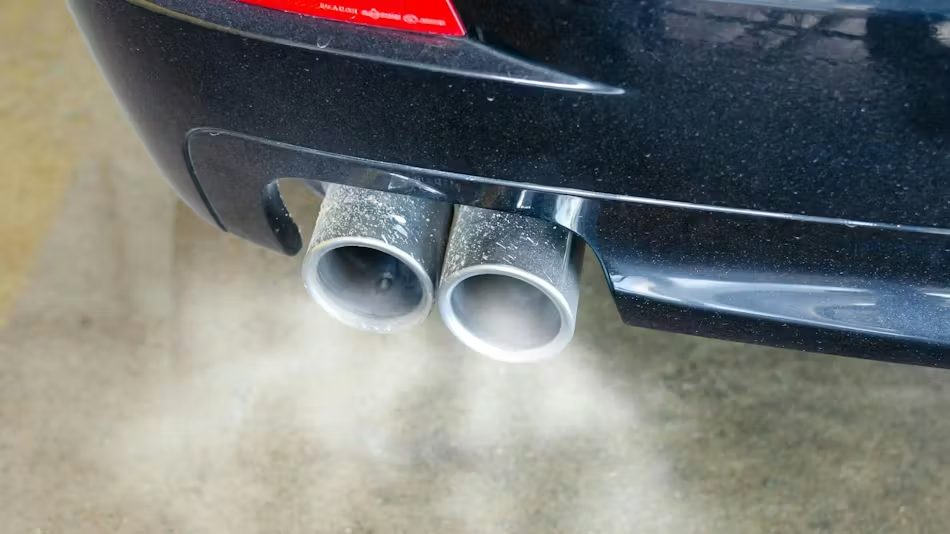General Motors (GM) has agreed to pay a $145.8 million penalty and forfeit credits worth hundreds of millions of dollars following a U.S. government investigation that revealed excess emissions from approximately 5.9 million GM vehicles according to Reuters. This investigation, conducted by the Environmental Protection Agency (EPA) and the National Highway Traffic Safety Administration (NHTSA), highlights significant compliance issues from GM vehicles spanning multiple model years.
The Investigation and Findings
The EPA’s multi-year investigation found that vehicles from the 2012-2018 model years emitted more than 10% higher carbon dioxide on average than initially reported by GM. As a result, GM has agreed to surrender approximately 50 million metric tons in carbon allowances. This settlement underscores the gravity of the discrepancies between GM’s compliance reports and the actual emissions levels.
Separately, the NHTSA identified fuel economy compliance issues in GM vehicles from the 2008-2010 model years. To address these findings, GM will cancel more than 30.6 million fuel economy credits and pay a $145.8 million penalty.
Financial Impact and Compliance
Earlier this year, GM disclosed ongoing discussions with the EPA and other regulators regarding adjustments to its credits. The automaker’s total costs expensed in connection with this issue through 2023 amount to $450 million, with the credits forfeited valued at approximately $300 million. GM stated that this figure is “consistent with the costs of the final resolution of these matters with the federal government.”
Despite the significant penalties and forfeitures, GM maintains that it has always complied with all applicable laws and regulations. “GM has at all times complied with and adhered to all applicable laws and regulations in the certification and in-use testing of the vehicles in-question,” the company said in a statement.
Environmental and Public Health Implications
The EPA emphasized the importance of strong oversight to ensure public health benefits from vehicle standards. “EPA’s vehicle standards depend on strong oversight in order to deliver public health benefits in the real world,” said EPA Administrator Michael Regan. He highlighted that the investigation achieved accountability and upheld a crucial program aimed at reducing air pollution and protecting communities across the country.
Environmental advocates were quick to criticize GM. Dan Becker, director of the Center for Biological Diversity’s safe climate transport campaign, remarked, “GM’s admission that they cheated on federal emissions and mileage rules shows why automakers can’t be trusted to protect our air and health, and why we need strong pollution rules.”
Market and Consumer Reaction
Industry analysts suggest that while GM’s reputation might take a hit, the long-term impact may be limited. Guidehouse Insights analyst Sam Abuelsamid noted, “Consumers seem to have a pretty short memory about these sorts of things.” Unlike the 2015 Volkswagen diesel emissions scandal, the EPA has not accused GM of using devices to intentionally reduce emissions during testing.
Future Compliance and Penalties
In June 2023, NHTSA reported that GM paid $128.2 million in fuel economy penalties for failing to meet requirements for 2016 and 2017. This marked the first time in the 40-year history of the fuel economy program that GM had paid a fine, as it had previously planned to use credits to meet compliance shortfalls.
Looking ahead, NHTSA has proposed increasing fuel economy standards from 2027 through 2032, a move that could cost GM $6.5 billion over the period. Under the final rule issued last month, NHTSA indicated that GM could face $906 million in penalties through 2031.
Katherine García, director of Sierra Club’s clean transportation for all campaign, stressed the importance of holding automakers accountable. “Any automaker failing its emissions limits should pay the price for its pollution,” she said.
This settlement and the associated penalties reflect the ongoing challenges and scrutiny automakers face in adhering to environmental and fuel economy regulations, highlighting the need for stringent oversight and accountability to protect public health and the environment.

